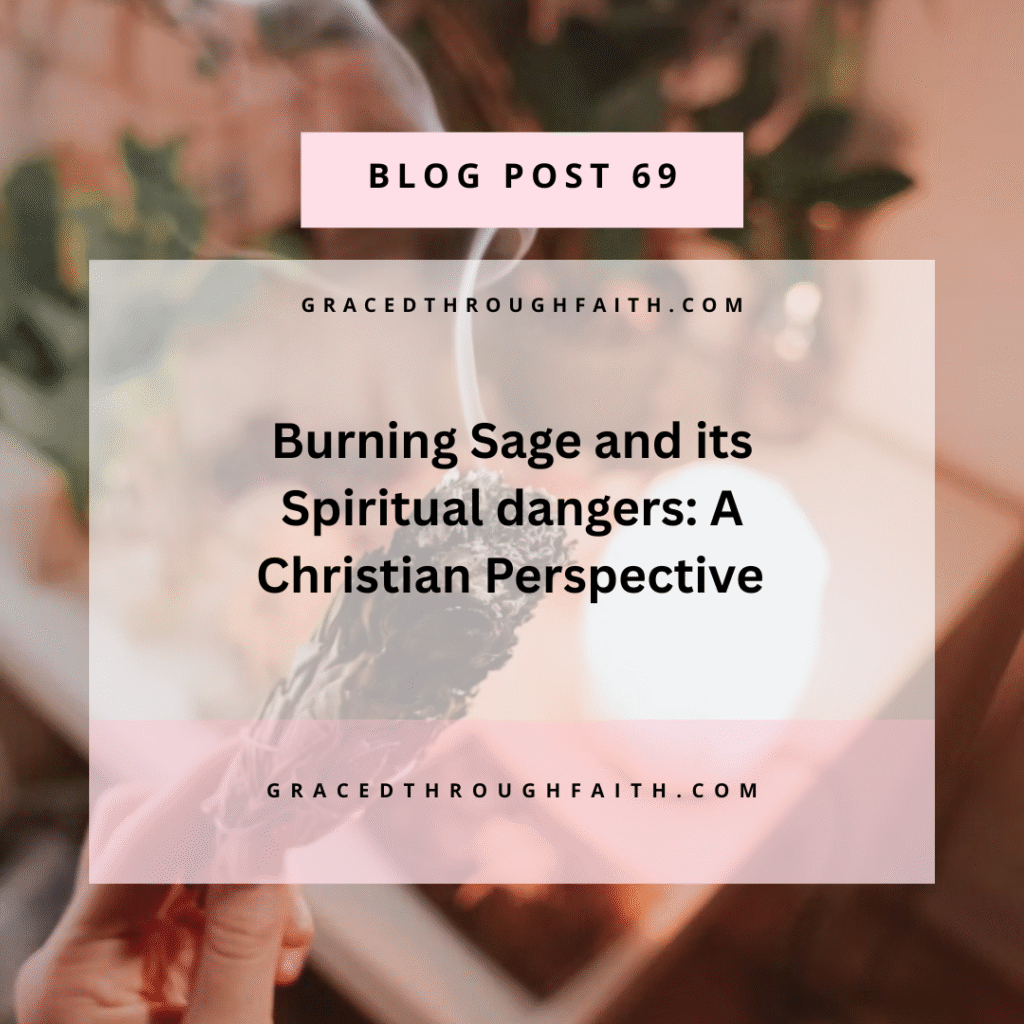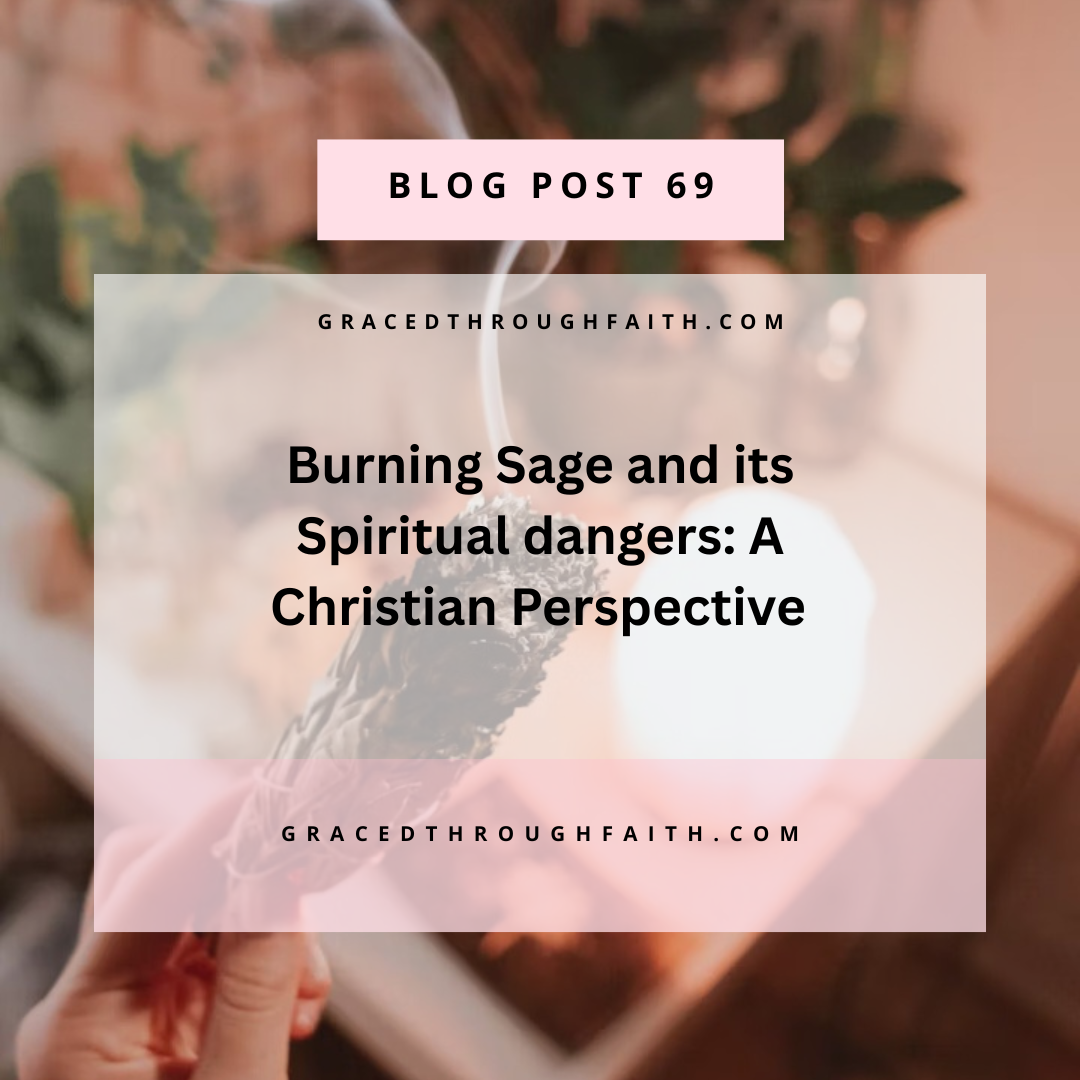
Burning sage, also known as smudging, has gained popularity in recent years as a method for “cleansing” spaces, removing negative energy, and promoting spiritual healing. While many view it as a harmless or even beneficial ritual, it’s important, especially for Christians, to understand the origins, spiritual implications, and potential dangers of engaging in this practice.
In this article, we’ll explore what sage is, where the practice of burning it originated, why it may pose spiritual risks, particularly for believers, and provide biblically sound alternatives.
What Is Sage and Why Do People Burn It?
Sage is a plant in the mint family, often used in cooking, herbal medicine, and more recently, spiritual rituals. The practice of burning sage dates back centuries and is most commonly associated with Indigenous Native American traditions. In these cultures, smudging is a sacred ritual used to ward off evil spirits, purify spaces, and invite positive energy.
Today, smudging has been commercialized and blended into New Age spiritual practices, often without understanding the spiritual dimensions and origins of the act. People burn sage to:
- Cleanse homes of “negative energy”
- Seek emotional or spiritual healing
- Enhance meditation or mindfulness
- Feel a connection with spiritual forces
But what exactly are these “spiritual forces”? And are they aligned with biblical truth?
Also Read: New Age and Astrology Beliefs: Can Christians practice them?
The Spiritual Dangers of Burning Sage
From a Christian perspective, the practice of burning sage is spiritually risky and not to be taken lightly. While it may seem like a simple or harmless tradition, smudging opens the door to spiritual practices rooted in paganism and occult beliefs, which the Bible clearly warns against.
1. It Invites Unbiblical Spiritual Influences
Burning sage assumes that we, through our own actions or rituals, can manipulate or control spiritual realms, something only God has authority over.
“Let no one be found among you… who practices divination or sorcery, interprets omens, engages in witchcraft…”
Deuteronomy 18:10 (NIV)
This verse makes it clear: God forbids His people from engaging in pagan or occult practices. Smudging, though often repackaged as “self-care” or “energy healing,” aligns more closely with these forbidden spiritual practices than with anything biblical.
2. It Replaces Trust in God with a Ritual
When believers turn to rituals like sage burning for protection or peace, they may unintentionally place trust in a physical object rather than in God’s power and presence.
“Some trust in chariots and some in horses, but we trust in the name of the Lord our God.”
, Psalm 20:7 (ESV)
Using sage for spiritual protection implies that God’s presence or the power of prayer isn’t sufficient. This undermines the sovereignty of God and can lead to spiritual confusion or deception.

3. Burning sage Can Open Doors to Spiritual Deception
Engaging in spiritual practices outside of biblical teaching may open doors to demonic influence or spiritual deception. While people may feel temporary relief, they could be unknowingly inviting harmful spiritual forces into their lives.
“And no wonder, for Satan himself masquerades as an angel of light.”
2 Corinthians 11:14 (NIV)
Satan often disguises lies in packages that appear good or harmless. A peaceful feeling during or after smudging doesn’t necessarily mean it is spiritually safe.
Biblical Alternatives to Burning Sage
Instead of turning to sage or other spiritual rituals rooted in unbiblical traditions, Christians have powerful, God-given tools to address fear, anxiety, and spiritual oppression:
1. Prayer and Fasting
Prayer is our direct line of communication with God. When we feel spiritual heaviness, instead of burning sage, we should pray and ask God to cleanse our hearts and homes.
“Do not be anxious about anything, but in every situation, by prayer and petition, with thanksgiving, present your requests to God.”
Philippians 4:6 (NIV)
2. Anointing with Oil
In Scripture, anointing with oil is used for healing, consecration, and setting apart people or places for God.
“Is anyone among you sick? Let them call the elders of the church to pray over them and anoint them with oil in the name of the Lord.”
James 5:14 (NIV)
Olive oil, prayed over and used in the name of Jesus, is a biblical way to symbolically set apart your home or family for God’s protection.
3. Declaring Scripture Over Your Home
The Word of God is a powerful spiritual weapon. Declaring Scripture aloud in your home invites the presence of God and aligns your heart and mind with His truth.
“Submit yourselves, then, to God. Resist the devil, and he will flee from you.”
James 4:7 (NIV)
Choose God’s Way, Not the World’s
While burning sage might seem like a peaceful or even trendy ritual, Christians are called to walk in the light of God’s truth, not follow spiritual practices rooted in other religions or the occult. The spiritual realm is very real, and so are the consequences of engaging with it outside of God’s design.
Let us be discerning, grounded in Scripture, and confident that God alone is our protector, healer, and guide.
Leave a Reply